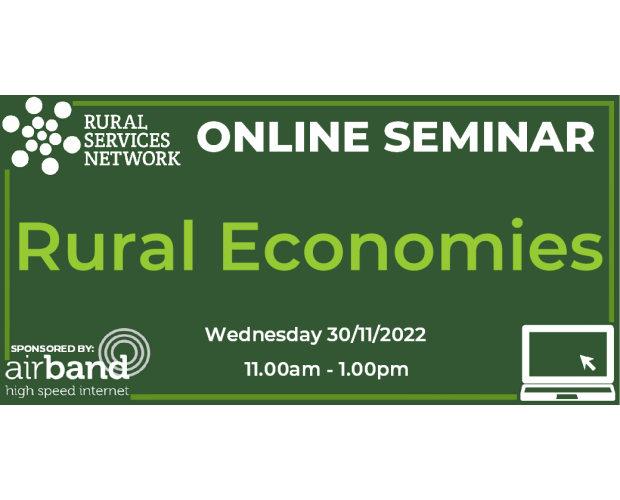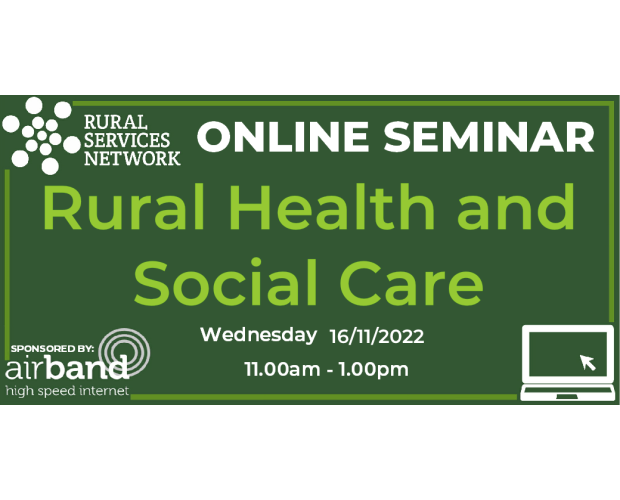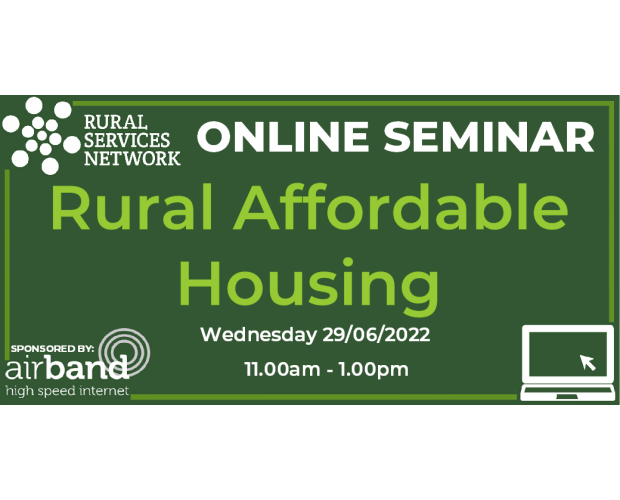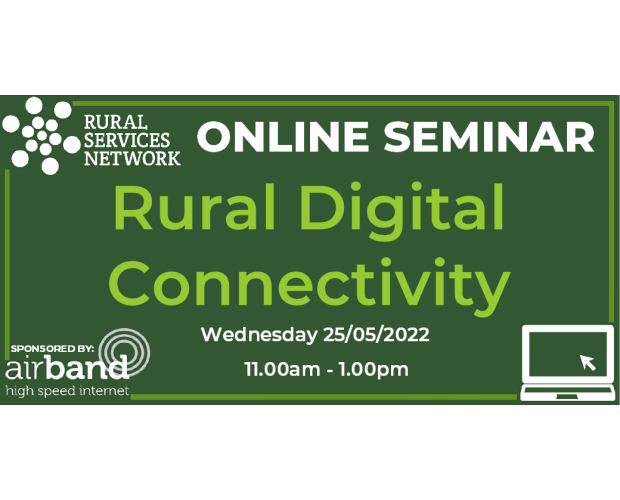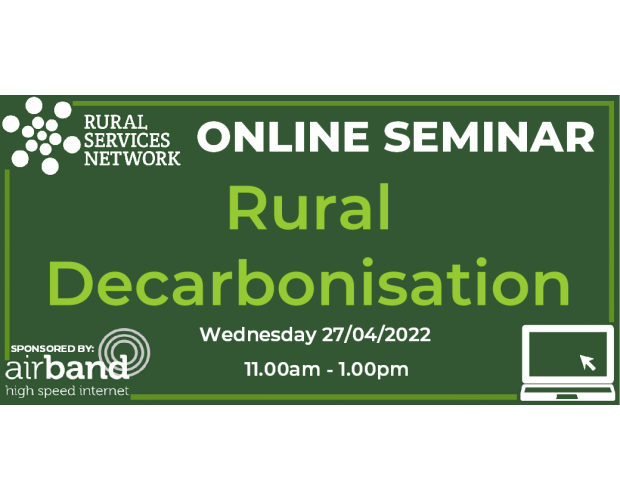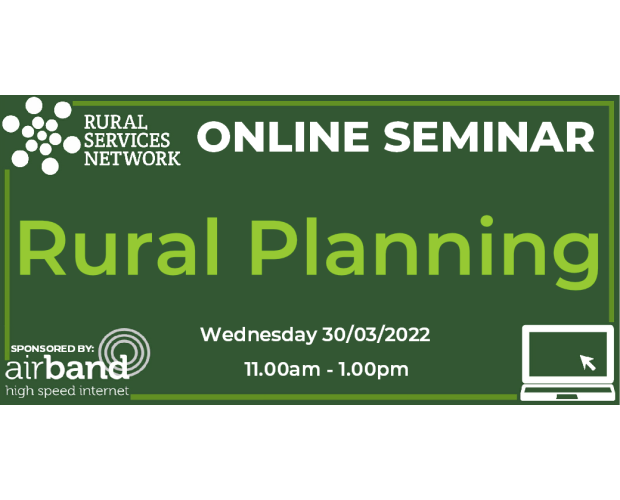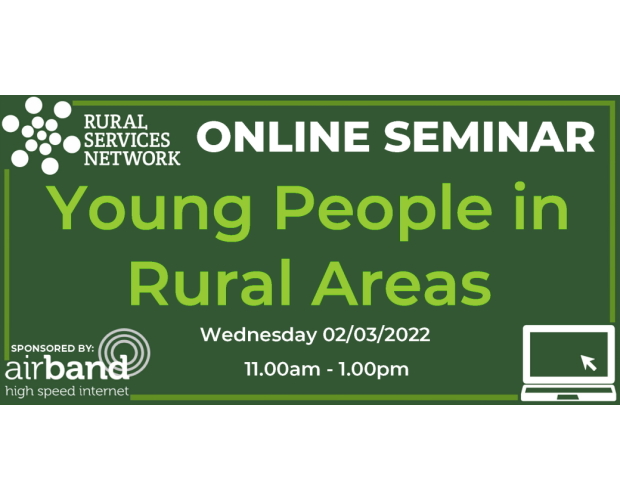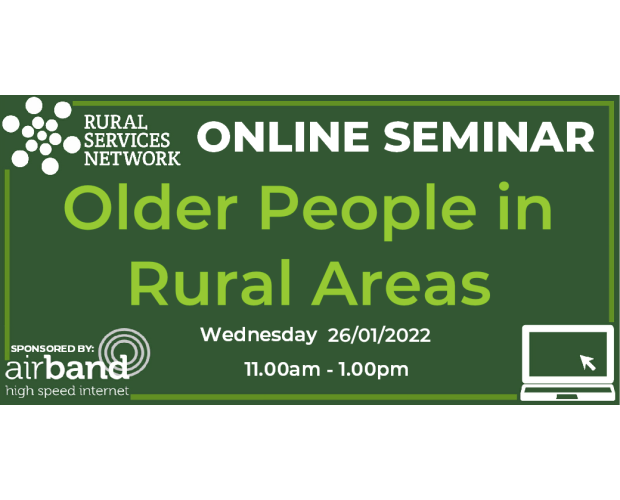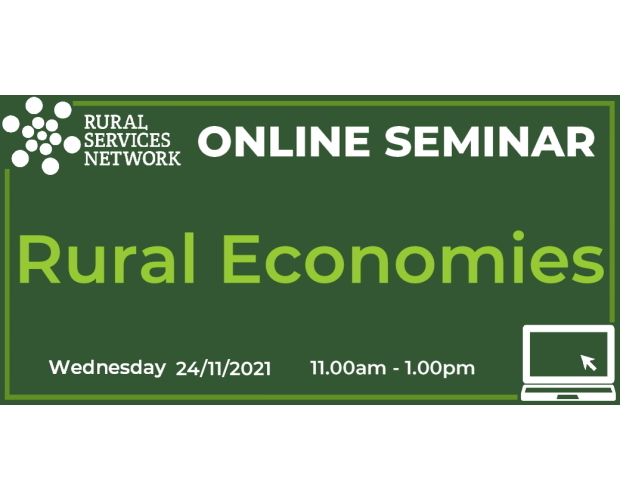T: 01822 851370 E: [email protected]
Seminars
- To download the Agenda for this seminar click here POST EVENT: PRESENTATIONS Kerry Booth, Chief Executive Designate, Rural Services Network “Introduction to Rural Economies” ...
- To download the Agenda for this seminar click here POST EVENT: PRESENTATIONS Kerry Booth, Chief Executive Designate, Rural Services Network “Introduction to Rural Health and Social Care” ...
- To download the Agenda for this seminar click here POST EVENT: PRESENTATIONS Kerry Booth, Chief Executive Designate, Rural Services Network “Introduction to Rural Town Centres, High Streets and Village...
Date: 29th June 2022 Subject: Rural Affordable Housing Chair: Kerry Booth, Deputy Chief Executive, Rural Services Network - To download the Agenda for this seminar click here - To view the...
Date: 25th May 2022 Subject: Rural Digital Connectivity Chair: Kerry Booth, Deputy Chief Executive, Rural Services Network - To download the Agenda for this seminar click here - To view the...
Date: 27th April 2022 Subject: Rural Decarbonisation Chair: Kerry Booth, Deputy Chief Executive, Rural Services Network - To download the Agenda for this seminar click here - To view the introduction...
Date: 30th March 2022 Subject: Rural Planning Chair: Kerry Booth, Deputy Chief Executive, Rural Services Network - To download the Agenda for this seminar click here - To view the introduction...
Date: 2nd March 2022 Subject: Young People in Rural Areas Chair: Kerry Booth, Deputy Chief Executive, Rural Services Network - To download the Agenda for this seminar click here - To...
Date: 26th January 2022 Subject: Older People in Rural Areas Chair: Kerry Booth, Deputy Chief Executive, Rural Services Network - To download the Agenda for this seminar click here - To...
Date: 24th November 2021 Subject: Rural Economies Chair: Kerry Booth, Deputy Chief Executive, Rural Services Network - To download the Agenda for this seminar click here - To view the introduction...
NEWSLETTER
Sign up to receive all our latest news and updates.
HOT TOPICS
Amid reduced public spending, fair resource allocation across regions is crucial. Despite a population larger than Greater London, rural areas receive significantly less funding for essential services, even though delivering these services in rural areas is more expensive.
Economic growth is widely acknowledged as essential for national wealth and prosperity and is a priority for political parties. Rural economies, employing millions and home to a higher proportion of small businesses, have potential for growth if barriers are removed.
Rural residents face distinct healthcare challenges, including limited access to transport, longer distances to medical facilities, an aging demographic, housing inadequacies, digital connectivity gaps, and difficulties recruiting health and care workers.
Rural communities are grappling with a severe affordable housing crisis, marked by high house prices, a lack of affordable housing, elevated living costs, and lower incomes, threatening their sustainability and vitality.
Transport is vital for the quality of life and economic health of rural areas, yet it faces challenges such as infrequent public bus services and less Government funding compared to urban regions.
Rural areas, encompassing a substantial portion of England's population and land, play a pivotal role in combating climate change and achieving the net zero target.
In an increasingly digital world, the lack of robust digital infrastructure in rural areas severely limits access to crucial services and stifles economic growth.
A future-focused vision for rural communities involves not just building the right homes in the right places but also ensuring thriving, sustainable communities.
SIGN UP TO OUR NEWSLETTER
Sign up to our newsletter to receive all the latest news and updates.

